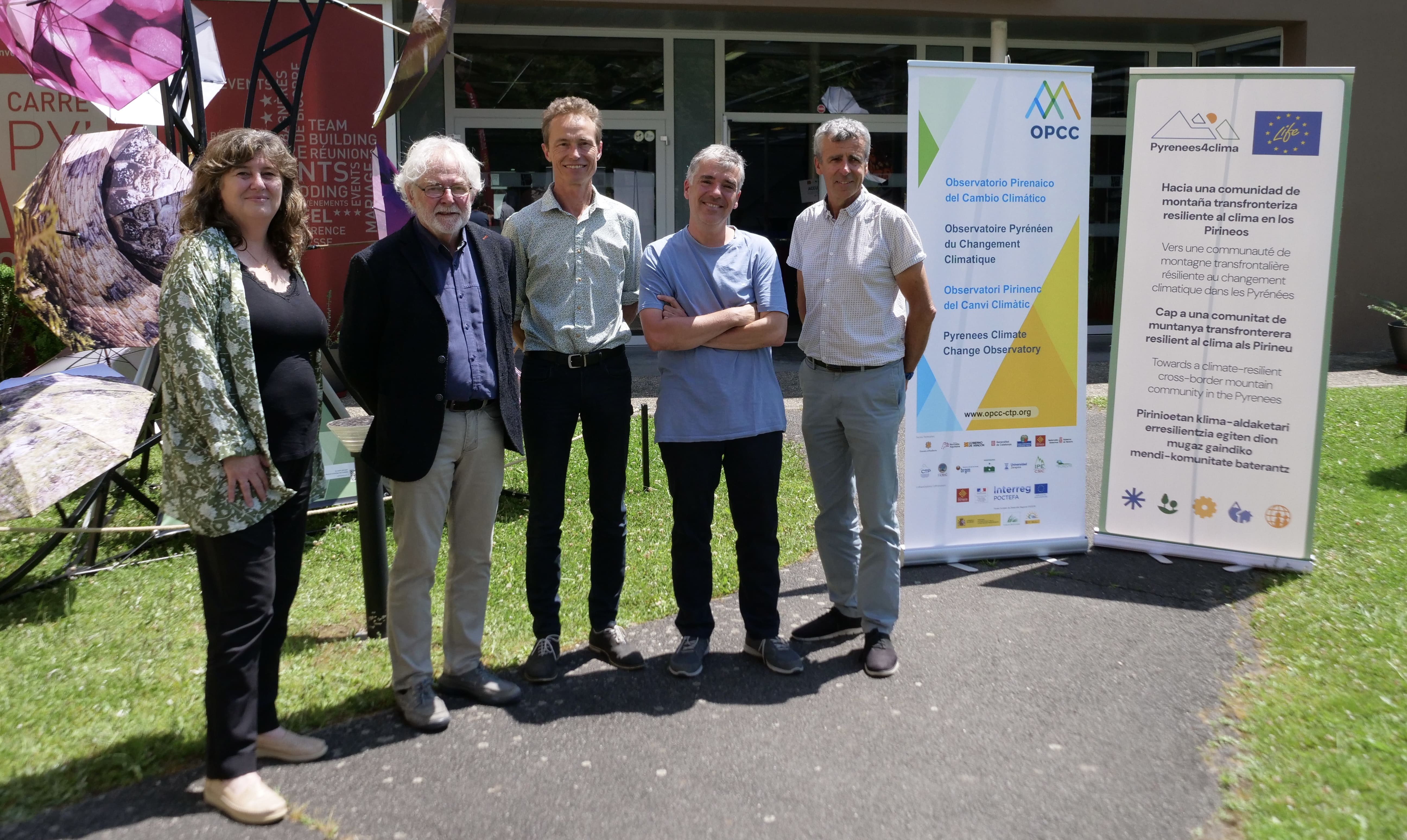The first Pyrenees in Transition Forum, within the framework of the LIFEPYRENEES4CLIMA project, demonstrates that cross-border cooperation is the best alternative for adapting to climate change.
The Forum highlighted knowledge and innovation as engines of change toward resilience in the Pyrenean region, and underscored the need for sustained dialogue among science, policy, and civil society.
On the occasion of the International Year of Glaciers, experts stressed the importance of deepening our understanding of the cryosphere, praised the Pyrenees’ world-class research capacity, and pointed to its value as a model for other mountain regions. Strengthening and introducing new regulatory measures was identified as a key step for advancing adaptation and preservation.
Over 220 participants attended Pirineos en Transición, which closed on a high note. During three days, specialists, land managers, public officials, and civil-society representatives—from local, regional, and European levels—exchanged knowledge and experience on topics ranging from technological innovation for monitoring sensitive ecosystems (for example, glaciers and the cryosphere) to indicator species of flora and fauna.
They also discussed the mountain economy, presenting alternative models for tourism and other vital economic sectors—forestry and agro-pastoralism. Demonstration projects showcased Nature-Based Solutions for ecosystem restoration, and citizen-led awareness campaigns illustrated how communities can mobilize around the climate challenge.
The program was deliberately multidisciplinary. Practical case studies covered the behaviour and monitoring of sentinel species—both plants and animals—that serve as early-warning indicators of climate change, including work by the Nature en Occitanie association. Under LIFE PYRENEES4CLIMA, they presented a study on the decline of Iberolacerta lizards in the Pyrenees—a species extremely sensitive to temperature shifts. Botanical presentations examined invasive or exotic plant species emerging as glaciers retreat, and the formation of novel mountain ecosystems.
Regulation as protection and preservation emerged as a central challenge. Michael Douette, Deputy Director of the National Botanical Conservatory of the Pyrenees (CBNPMP) and co-chair of the mountain ecosystems session, argued that adapting scientific language and framing is crucial to engage diverse actors—citizens, lawmakers, and business leaders—in climate action.
Similarly, David Arnaud, Director of the Pyrenees National Park (France) and LIFE PYRENEES4CLIMA partner, stressed that managing protected areas requires balancing user needs, habitat conservation, and public-interest values. He called for “inventing the Pyrenees of the future” with a more global, strategic vision that aligns land-use with nature’s critical functions. In his view, parks play a vital role in awareness-raising, but true progress demands updated regulations.
Glaciologist Ignacio López Moreno (IPE-CSIC), who co-led the glaciers and cryosphere session, echoed this call for comprehensive regulatory measures to govern use and protection across the Pyrenean arc. He noted that initiatives like LIFE PYRENEES4CLIMA can catalyse such change—and that meetings like this build bridges between science, policy, and society, reinforcing the Pyrenees as both a cutting-edge research laboratory and an exemplar for other mountain regions.
Governance proved another decisive theme. Many participants emphasized that gathering to share concerns and collaborate on collective solutions is essential for moving toward joint governance and more effective action. Iñaki Gerenabarrena of Hazi Fundazioa (Basque forest management) observed that European projects like LIFE PYRENEES4CLIMA are valuable because they champion sustainability, address mountain-specific needs, and develop multifunctional solutions untethered from pure market logics.
For Eva García Balaguer, Coordinator of the Pyrenean Climate Change Observatory, strengthening Pyrenean governance is key to building resilience across the entire mountain range. She highlighted the added value of outreach and awareness tools, and of engaging informal networks and grassroots associations to bring fresh perspectives.
Citizen participation also featured prominently. A transgenerational dialogue between Pyrenean youth and a representative of Switzerland’s Grand-Parents for the Climate association underscored the power of intergenerational exchange. As young participant Enzo Amand put it, “Older generations have experience and see climate change with urgency; for us, it’s our future—bringing both perspectives together is enriching.”
Citizen science likewise received strong support. María Begoña García (IPE-CSIC), winner of a Citizen Science Award, explained that such initiatives empower people to take responsibility for climate monitoring. Practically speaking, citizen-driven data collection helps map species distributions and detect population declines that might otherwise go unnoticed.
Pirineos en Transición took place in Bagnères-de-Bigorre (Occitanie, France) from June 18–20, 2025. As the first event of its kind under the European LIFE PYRENEES4CLIMA project, it attracted a diverse group of experts and broadened the conversation to include a wide spectrum of stakeholders—thereby elevating both expectations and outcomes. The next forum, held biennially, will convene in Navarre in 2027.
PYRENEAN CLIMATE CHANGE OBSERVATORY
Avenida Nuestra Señora de la Victoria, 8
22.700 - Jaca
Huesca - España
+34 974 36 31 00
info_opcc@ctp.org








